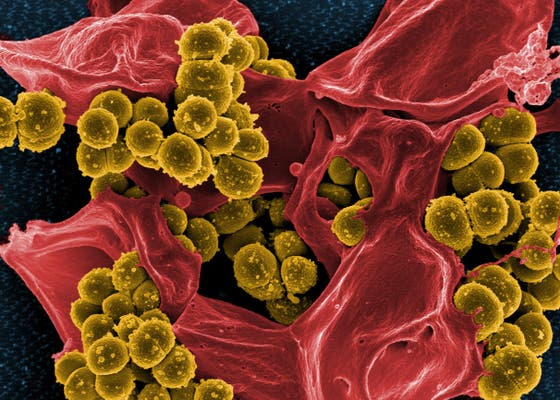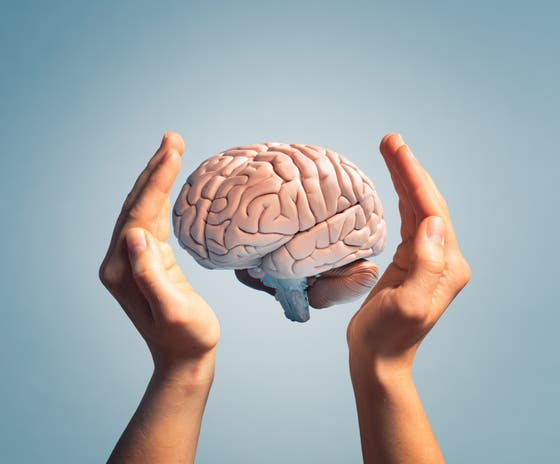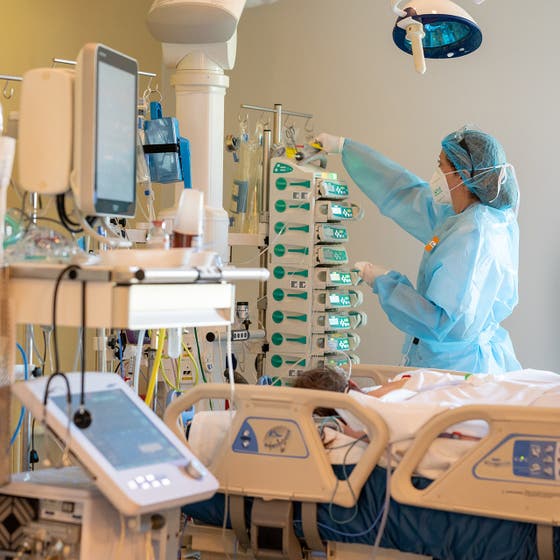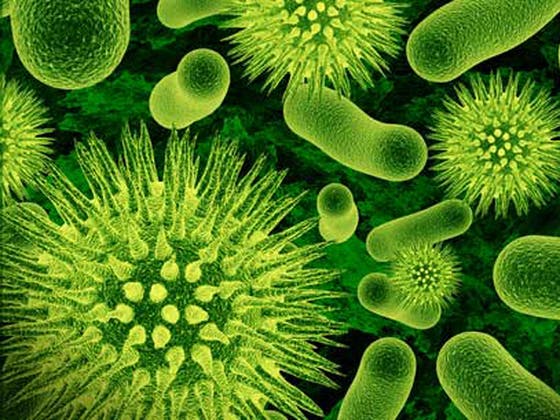Infection and Immunity nieuws
May 30: The female microbiome: from collecting knowledge to application

On May 23 2022, Janneke van de Wijgert, professor of infectious and immune mediated disease epidemiology at UMC Utrecht, held her inaugural lecture. In this lecture, Janneke discussed the female microbiome: the ‘community’ of microorganisms found in the female genital and urinary tracts. A striking statement in Janneke's lecture is that – in her opinion – the quality of scientific microbiome research is rather variable. The quality of microbiome studies should be improved to move the field forward from exploration to application.
Read moreMay 19: Genetic condition causes severe Staphylococcus aureus infections

International research - coordinated by clinical microbiologist and clinician-scientist András Spaan (UMC Utrecht and The Rockefeller University) - has unraveled why, after infection with the notorious bacterium Staphylococcus aureus, some people fall severely ill. In this seminal study, now published in the journal Science, the investigators describe how a genetic condition - called OTULIN haploinsufficiency - predisposes people to life-threatening staphylococcal disease. Using sophisticated methods, the investigators unravel the disease on a molecular level and identify therapeutic leads.
Read moreApr 25: New prediction model can help GP recognize sepsis in adults earlier

Simple measurements such as blood pressure, heart rate and blood oxygenation can help GPs better assess the risk of sepsis, a life-threatening condition. However, measuring inflammation blood biomarkers does not help to further improve this assessment. This was shown in research by University Medical Center (UMC) Utrecht and Radboudumc, which was published this week in the medical journal British Journal of General Practice.
Read moreApr 14: Antiretroviral drugs may impair cognitive function in people with HIV

Some types of antiretroviral therapy – in particular those containing efavirenz as an active ingredient – have a negative effect on cognition in patients with HIV. Discontinuing of this drug can significantly improve cognitive functioning in these patients, as was concluded in the PhD research by Charlotte Hakkers at UMC Utrecht.
Read moreApr 12: UMC Utrecht to coordinate research on allergy risk assessment of ‘novel foods’

UMC Utrecht will coordinate a large allergy risk research consortium that will develop tools to assess the allergic potential of so-called ‘novel foods’. Kitty Verhoeckx, PhD, assistant professor food allergy at UMC Utrecht, has received a Marie Sklodowska-Curie DN grant of € 2.6 million for a food allergy research project titled ‘Allergenicity Prediction Toolbox for novel foods’ (ALLPreT). She will coordinate the project of 10 early stage researchers (ESRs) and 24 international partners.
Read moreMar 25: Corona self-tests more accurate when sample is taken from nose and throat

Research from the Netherlands has revealed that in individuals with Covid-19 like symptoms, the sensitivities of three commercially available corona self-tests performed with nasal self-sampling decreased during the emergence of the Omicron variant. However, self-sampling in nose plus throat led to an increase of the accuracy of the self-tests. These findings indicate that nose combined with throat self-sampling is beneficial for the investigated self-tests. However, this is not yet in accordance with the current instructions for use and registration of the self-test.
Read moreMar 22: Aspirin may improve 3-month survival for patients critically ill with COVID-19

Antiplatelet drugs such as aspirin have little effect on the need for life support in COVID-19, but they may improve survival in the following months according to the latest results from the international REMAP-CAP study.
Read moreMar 17: Immune inhibitory receptors in host-microbe interaction

PhD research by Matevž Rumpret at UMC Utrecht has identified two new groups of ligands for one of the inhibitory receptors on immune cells for which until now no ligands were known. It was also demonstrated that inhibitory receptors on immune cells perform different functions in different situations, and that not all inhibitory receptors perform the same functions. Rumpret therefore proposes that some inhibitory receptors may recognize molecular patterns analogous to how activating receptors recognize them.
Read moreMar 16: What if HIV could be cured . . .

Scientists at UMC Utrecht set out to find out what the consequences would be of a possible HIV cure for people living with HIV and for people who are vulnerable to HIV but do not yet have HIV. This is important so that health care providers can prepare for the day when an HIV cure becomes a reality.
Read moreMar 15: Improved patient targeting for better osteoarthritis drug development

To increase the success rate in the search for effective osteoarthritis treatments, rheumatologists have to better distinguish between the different disease phenotypes. This will contribute to personalized drug development which allows to treat osteoarthritis patients more specifically for their individual underlying cause, concluded Eefje van Helvoort (UMC Utrecht) in her PhD thesis that she defended on March 15, 2022.
Read more